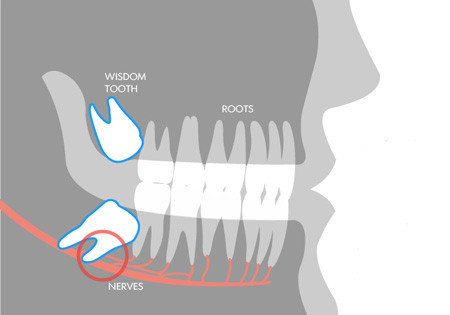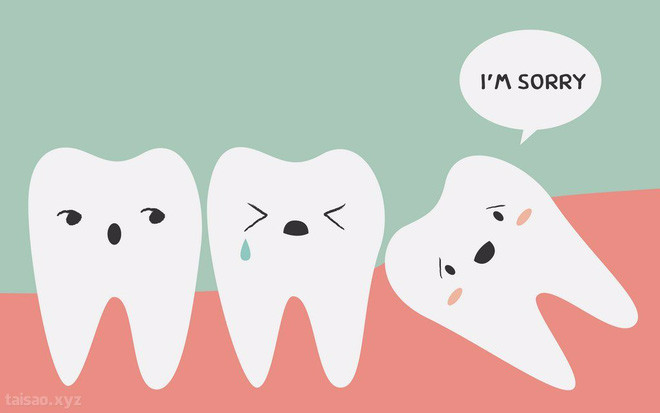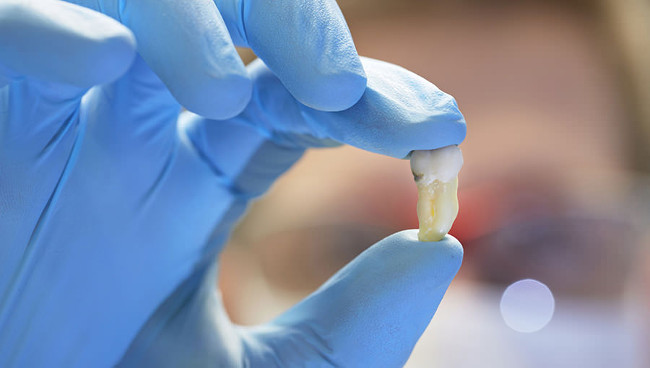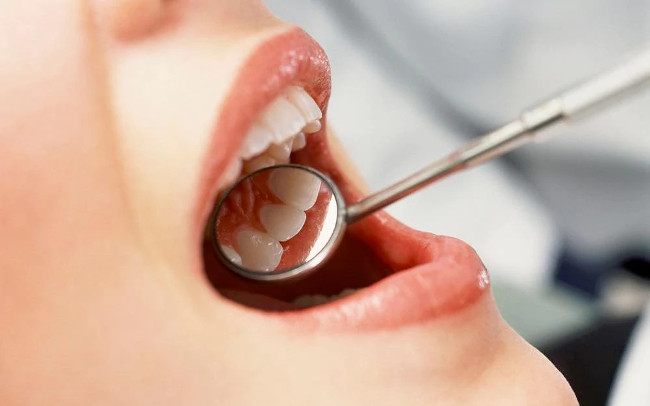Why is it so stupid and painful that they're still called wisdom teeth?
Wisdom teeth are the third largest molars, which grow in the last position on each side of the jaw and are the latest teeth to appear in all adult teeth.
- Recognize the symptoms of wisdom teeth for better coping
- 10 mistakes are often made when taking care of your teeth

About 65% of the world's population will have wisdom teeth. In the process of growing this tooth most of the time, we have to suffer pain, discomfort, even make the tooth on the side shaken, sharp pain and inflammation.
The reason is that wisdom teeth grow when we are adults, from 17 to 25 years old, when the jaw bone is hard, the mucosa and thickly covered tissue above lead to a lack of space to develop. Therefore, wisdom teeth often grow underground, deviate because of lack of space, even stabbing into the tooth next to them.
Why is "growing stupid" so they are called "wisdom teeth"?
The name "wisdom tooth" has been around since the 19th century. Because, it is often seen that these unkind wisdom teeth often appear only when people are about 17-25 years old, which is the period when people gradually complete. self-improvement, changing from adolescent to adulthood.
So, people put their names as wisdom teeth with the meaning of marking maturity, maturity and greater wisdom.

Wisdom teeth have different meanings depending on the culture in each region and country.
In Dutch or Arabic wisdom teeth mean wisdom. In Japanese, wisdom teeth are called Oyashirazu, meaning "unknown to parents", only those who have grown up and moved out.
In Indonesian, wisdom teeth are called "Gigi bungsu", which means the youngest because based on the fact, it grows late and has the smallest age.
For the Thai, the wisdom tooth named "Fan-khut" means lack of space.
The most special is probably in Korea, the name of the wisdom tooth is "Sa-rang-nee", referring to the youth and the pain of first love, the first true love usually takes place at the age of 17 -25 this!
Most wisdom teeth must be extracted

It is estimated that about 85% of wisdom teeth will be extracted, only 15% will survive until the end of life after the end of humans.
The reason is that wisdom teeth grow in an unfavorable position causing pain to us. In addition, wisdom teeth are located too deep inside the jaw so it is difficult to clean, bacteria easily proliferate and increase the risk of tooth decay, gingivitis .
Even in some cases, wisdom teeth have problems but are not treated promptly, causing infections to spread to the surrounding areas such as eyes, ears, cheeks, neck . that are dangerous to life .
Things to note after wisdom tooth extraction

In case you are asked by a dentist to wisdom teeth extraction, you should pay attention to the following:
The swelling is an inevitable condition for anyone who has extracted this tooth. After taking the medicine and taking measures to reduce swelling caused by the doctor's instructions, this condition will be relieved.
Nutrition: After wisdom extraction, you should choose soft, easy-to-swallow foods to relieve the feeling of pain.
Bleeding: After extraction, you may bleed in the first few hours but will gradually decrease. If you have a lot of bleeding, you should inform your doctor immediately to get emergency treatment.
After wisdom extraction, you need oral hygiene according to your doctor's instructions to avoid the risk of unwanted infection or complications.